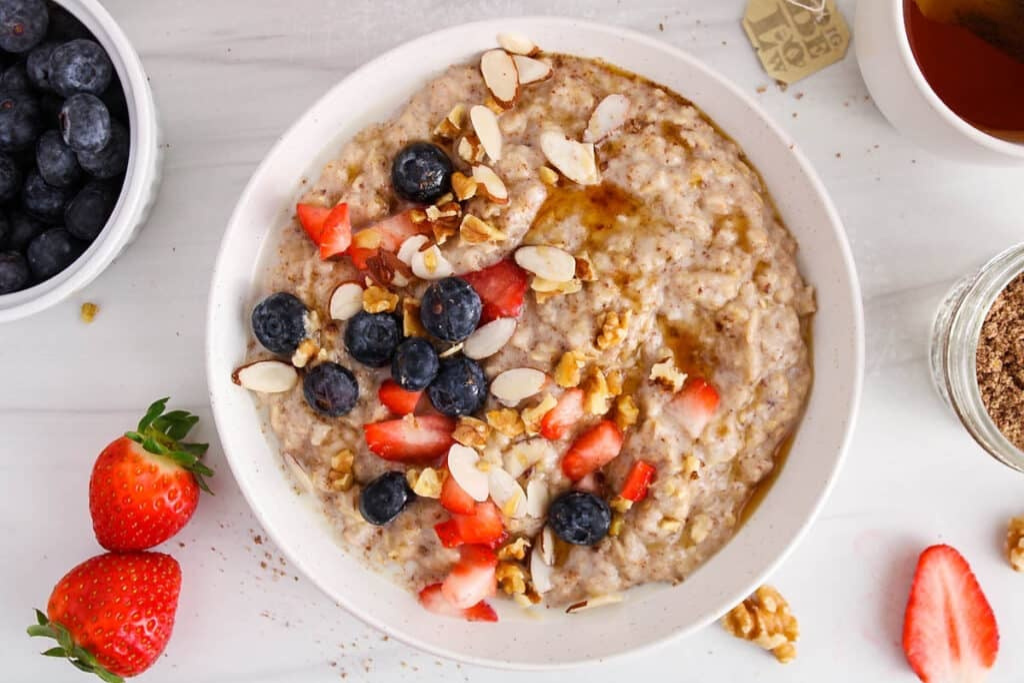Top 10 Mood-Boosting Superfoods to Eat When You’re Feeling Low
Although most meals lack superpowers, some are so exceptional that they have been dubbed “superfoods.” According to Lauren Twigge, RDN, superfoods are typically “loaded with vitamins, minerals, and antioxidants relative to their calorie content,” however there isn’t a formal classification. She adds that they are also occasionally referred to as “functional foods.”
So, what makes mood-boosting superfoods important? According to Twigge, mood-boosting superfoods have advantages beyond their nutritional value, such as the capacity to elevate mood. Yes, nutrition may affect mood in general, which is helpful during the winter months when seasonal depression is more common.
It operates in a different way than you may imagine. It’s related to your digestive system. Patricia Bannan, RDN, says that the gut-brain axis—a strong connection between the stomach and the brain—is the reason why food and mood are related. Therefore, a lot of foods that are good for gut health are also good for mood and brain health, and vice versa.
1. Greek Yogurt
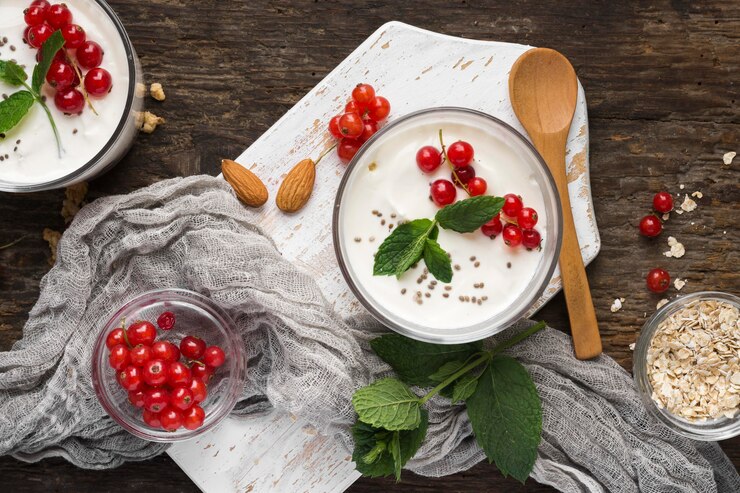
Greek yogurt is a cultured milk product that you may eat on its own or in smoothies and savory dips if you’re not a big milk drinker. According to Bannan, “Greek yogurt is full of active cultures that support a healthy microbiome, which is closely linked to mood regulation.” She cites a 2014 study that demonstrated the stress-reduction benefits of yogurt. Yogurt has been shown in other studies to reduce anxiety.
2. Salmon

The advantages of fatty fish, such as salmon, for the brain are well documented. According to Bannan, “omega-3 fatty acids, especially EPA and DHA, are essential for brain health and mood regulation and are abundant in salmon.” “Omega-3s promote the synthesis of serotonin, a neurotransmitter that aids in mood stabilization.” They have even been demonstrated to lessen depression.
3. Uncultivated Blueberries
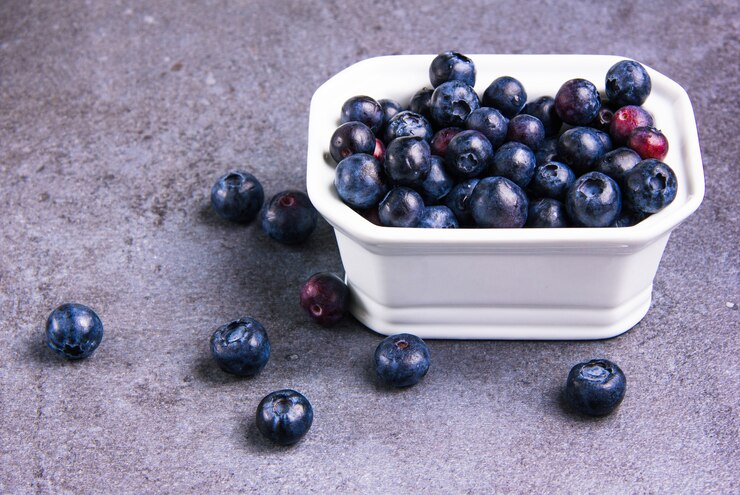
Research indicates that antioxidants, such as carotenoids, may provide some protection against mood disorders like depression. Blueberries are among the foods that are highest in antioxidants. While there are a variety of berries to pick from, Maggie Moon, RD, suggests that wild blueberries could be a good option for mental and brain health.
“Flavonoids, which are antioxidants that increase blood flow to the area of the brain that controls emotions, are found in wild blueberries and may help reduce the symptoms of depression,” says Moon. She also cites a 2017 study that discovered that children’s and young adults’ moods were improved for the day after consuming a cup and a half of wild blueberries.
4. The Pistachio
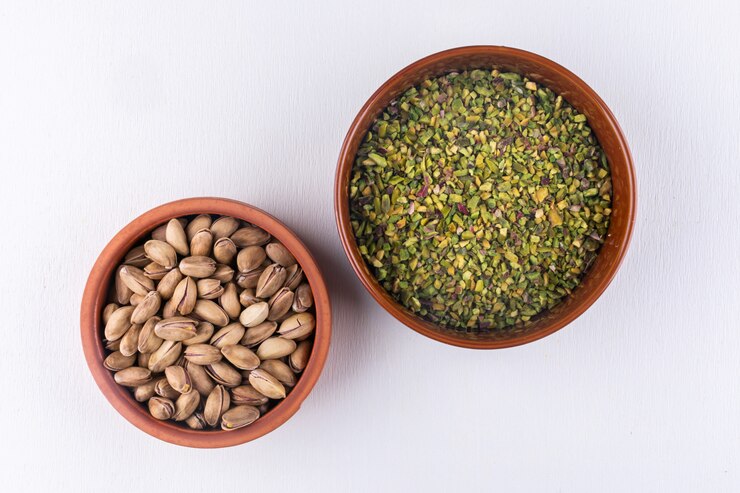
Almonds and walnuts receive a lot of attention, but pistachios are also very beneficial. According to Bannan, they are an excellent source of fiber and plant-based protein, which help to balance blood sugar levels and avoid energy slumps. “They also contain vitamin B6, which is essential for the production of serotonin and other neurotransmitters that support a healthy mood, as well as healthy fats for hormone and brain health,” she continues. Particularly, pistachios have been demonstrated to enhance mood and cognitive function.
5. Peanut Butter
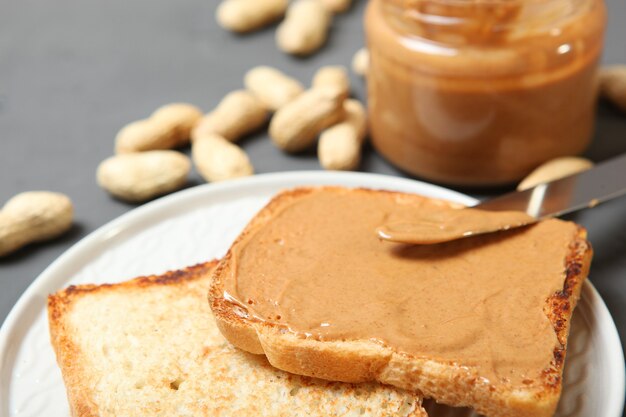
Peanut butter, the creamiest and most nostalgic sandwich filling, is a nutritionally underappreciated mood enhancer. According to Moon, it has a high concentration of the B vitamin niacin. According to Moon, niacin deficiency “supports neurotransmitter production” in addition to being linked to depression. Peanut butter has even been connected to improved stress response and memory performance.
6. Eggs

Eggs are always a good breakfast option, but if you have to choose between whole eggs and egg whites, the former is unquestionably the better option. Egg whites indeed contain more protein per gram than yolks, but here’s why the entire egg is a superfood. Moon notes that lutein and vitamin D, which improve mood, are found in the yolk. She says, “Vitamin D aids in the production of the feel-good neurotransmitter serotonin.” “Research indicates that lutein, an antioxidant, may help reduce stress and elevate mood.”
7. Seeds from Pumpkins
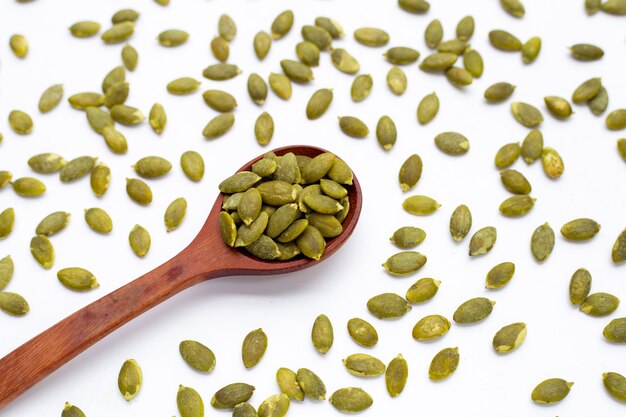
Don’t discard the seeds while carving pumpkins in the fall. This might result in the loss of some nutrients that improve mood. According to Bannan, “pumpkin seeds are rich in zinc, which supports neurotransmitter function and a healthy mood, and magnesium, which may help reduce anxiety.” “They also offer prebiotics for gut health, which is crucial for mood stability, and healthy fats for hormone regulation.” It has been demonstrated that pumpkin seeds can lessen depression symptoms, although most of the studies have been conducted on animals, and human trials are required to draw a firm conclusion.
8. The Oatmeal
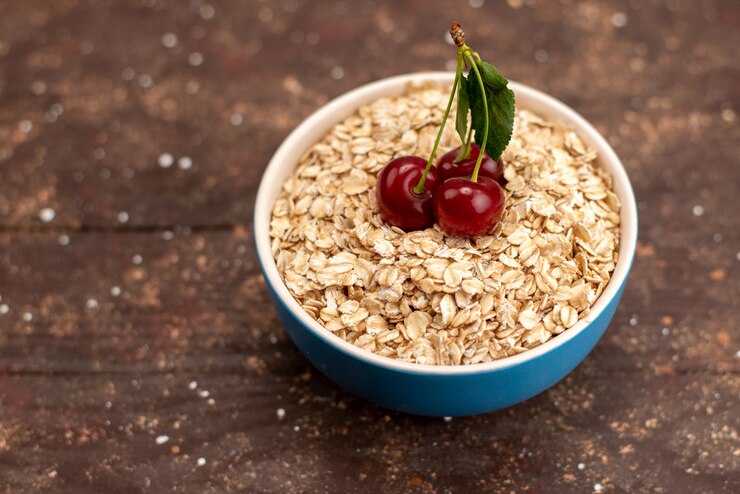
Oatmeal is a staple at breakfast for a reason: it provides complex carbs, fiber, vitamins, and minerals to start the day. According to Bannan, “the brain gets consistent energy and fuel from complex carbohydrates.” “Oats also contain B vitamins and magnesium, which reduce stress and anxiety.” Furthermore, studies have shown that the fiber in oats helps lessen anxiety and fatigue.
9. Dates

Dates are particularly sweet, although fruit is naturally sweet. Because they contain a lot of naturally occurring sugars and have a chewy texture that makes them a fun snack, they are frequently referred to as “nature’s candy.” “Medjool dates are a good source of the antioxidant selenium, which may help reduce depressive symptoms,” explains Moon.
Dates don’t require much assistance in terms of flavor because they are naturally sweet. However, there are many ways to use them creatively. To organically sweeten chilies, grilled cheese sandwiches, or yogurt parfaits, Moon advises adding them to smoothies or blending them with a small amount of warm water to create date paste.
10. Walnuts

According to Twigge, nuts in general are superfoods that improve mood. Because they contain significant levels of fatty acids like ALA, walnuts are a prime example.
According to Nicole Ibarra, RD, “the essential fatty acids in walnuts can support brain health and reduce inflammation.” Additionally, vitamin B6—one of the building blocks of GABA, a neurotransmitter in the brain that encourages relaxation—is found in walnuts. Additionally, studies indicate eating walnuts may offer cognitive and mental health advantages. For instance, a 2019 study found that walnut eaters often had lower depression levels.

